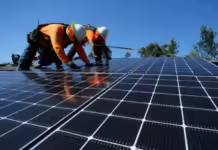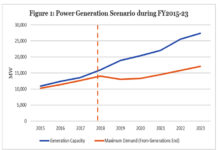Originally posted in The Financial Express on 17 December 2021

The news of electricity generation from municipal waste has been in the air for sometime now. There were reported moves for undertaking projects to achieve the dual objectives of raising the country’s energy reserve and initiating a new method of scientific waste management. However, the moves did not materialise despite the relevant authority’s optimism about bright prospects of such projects. Of late, the Cabinet Committee on Public Purchase’s approval of a 42.5-MW waste-based power plant to be set up in Gazipur under Chinese investment inspires the hope of such a project becoming a reality. The plant with an investment of $450 million will be based on incineration technology and its cost is reportedly low compared to other waste-based energy projects. The plant would be fed 2,500 tonnes of mixed-waste by the Gazipur Municipal corporation daily.
Curiously, what appears to be the highlight of the proposed project is waste management, though generating additional power through renewable energy means a lot for the country. Observers are hopeful that once the project is successfully implemented, chances are high that investment might flow in this area, as the power thus produced could be profitably sold to the government. In fact, a number of proposals are already under consideration of the concerned agencies of the government, which include two plants in the city corporation areas of Narayanganj and Chattogram.
With the increasing trend of the urban population in Bangladesh, waste generation is also increasing-to the extent that it is regarded as one of the major sources of various health hazards. With around 70 per cent organic solid waste, the urban areas generate 23,688 tonnes of waste a day. Generation of such huge quantities of waste and garbage has a serious adverse effect on environment and the day-to-day lifestyle of the people. In this regard adopting waste to energy (WtE) technique is recognisably the most suitable method for addressing the waste management problem facing the country. It has been gathered that the WtE method encompasses a wide range of functions. While power generation is the ultimate objective, WtE plants are required to spend a substantial part of investment on safeguarding the environment, especially from methane gas released by decomposed waste to produce electricity. In the aforementioned project, according to project sources, 40 per cent of the investment will be meant for environmental protection. In this connection, it may be mentioned that selecting an appropriate site for the plant is very crucial. The government’s overseeing body must ensure that the project activities are absolutely in conformity with standard procedures, from the very start.
Al though a belated move, one can hope for some respite from the menacing effects of ill-managed waste all over the country. Since renewable energy is the call of the time and Bangladesh does need to harness production of renewable energy to meet the government’s target of significantly raising energy reserve, it is extremely important that the concerned agencies of the government extended necessary support for implementation of the waste-based power generation project.






